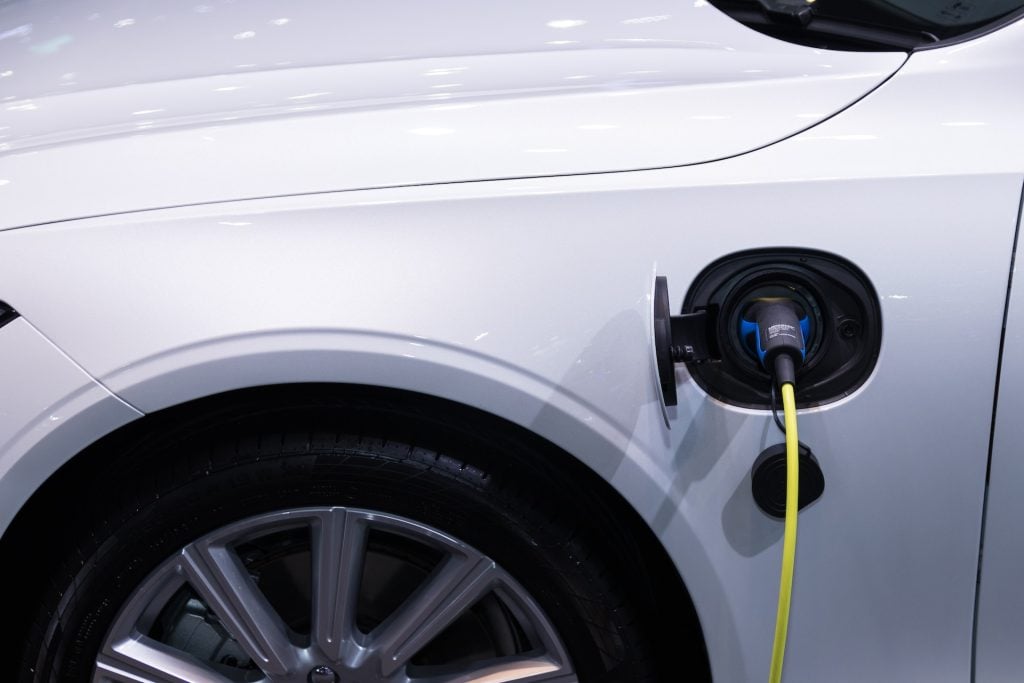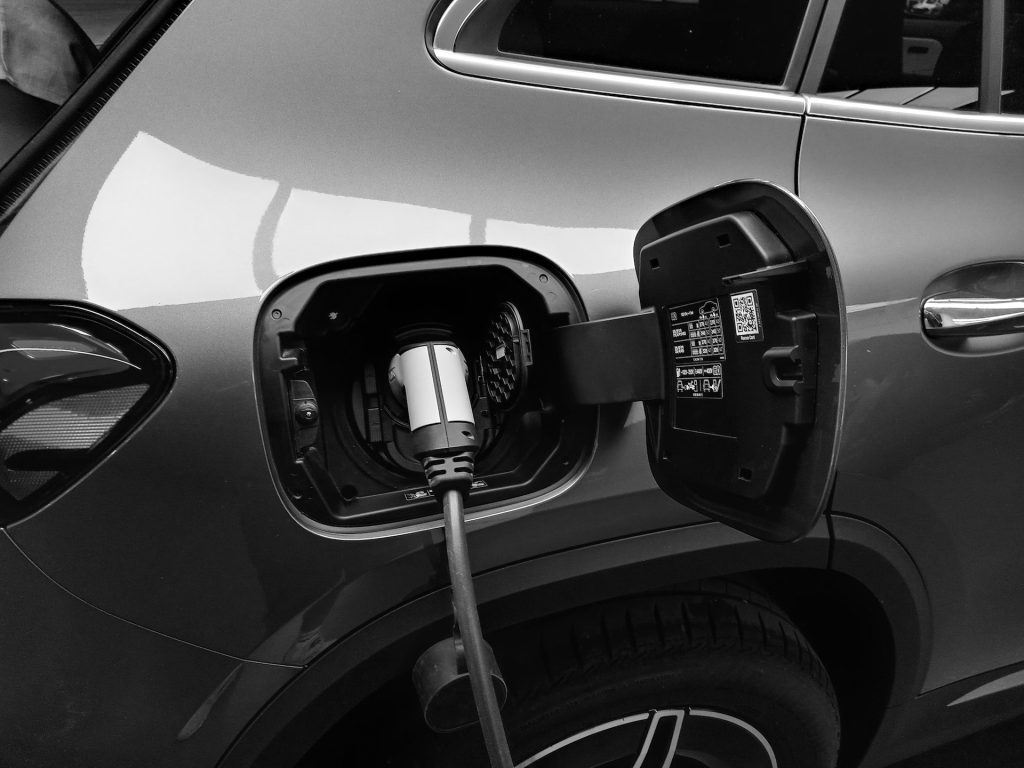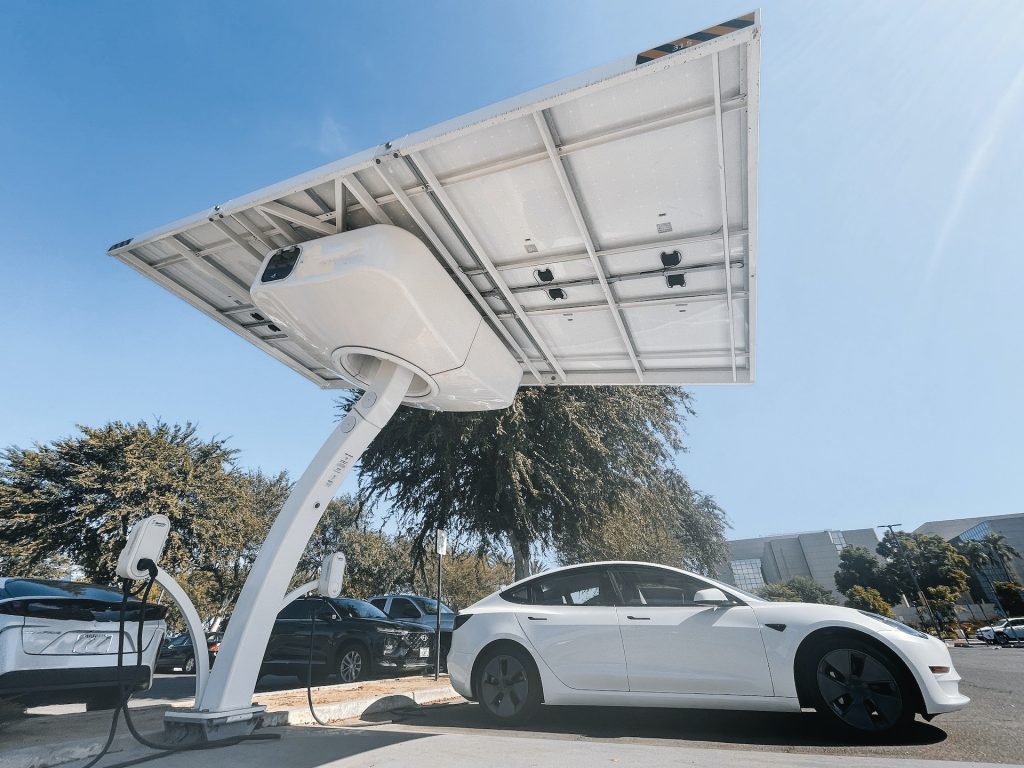Protecting Your Investment and Family
The increasing popularity of electric vehicles (EVs) and hybrid cars has sparked a transformation in the automobile industry. With more options available than ever before, prospective buyers are considering the benefits of cleaner and more sustainable transportation. However, one aspect that often surprises new owners is the higher cost of insuring an electric car compared to a gas-powered model. In this comprehensive guide, we will delve into the intricacies of electric vehicle insurance, exploring the reasons behind the higher premiums and providing practical tips to save money on cheap insurance.
The Rise of Electric Vehicles and Changing Market Dynamics
The first part of our guide considers the growing popularity of electric vehicles and the shifting landscape of the automotive industry. As governments worldwide embrace sustainable legislation and offer tax credits, EVs are becoming more mainstream. With intense competition among manufacturers, the prices of smaller EVs have steadily declined, making high-end electric cars accessible to a broader buyer market. The days of gas-powered cars are gradually fading away, making room for a cleaner and greener transportation future.

Understanding the Factors that Make EV Insurance Expensive
While purchasing insurance for an electric car may initially seem similar to that of a gas-powered vehicle, there are significant factors that drive up premiums for EVs. The price of the vehicle itself is typically higher due to advanced technology and specialized components like lithium batteries. Moreover, the scarcity of skilled mechanics and the requirement for specialized repairs contribute to increased insurance costs. Understanding these factors is crucial for new EV owners.
Average Price for Electric Car Insurance
To provide a clearer picture of insurance costs, an important factor to consider is the average price of car insurance for electric and hybrid vehicles. While the national average for car insurance in the United States ranges from $622 to $2,014, premiums for EVs can be significantly higher. Industry data reveals a range of $2,152 to $4,725 for electric and hybrid cars, with popular models like the Tesla Model Y and Model 3 exceeding the average. This information helps buyers estimate their insurance expenses when considering an electric vehicle.
Strategies to Save Money on Electric Vehicle Insurance
These strategies include comparing multiple insurance providers to find the best rates, inquiring about special discounts and pricing options, considering pay-per-mile insurance, and adjusting deductibles. By implementing these approaches, owners can potentially reduce their monthly insurance costs without compromising coverage.
Considerations and Future Outlook
While EV insurance premiums can be higher at present, it’s essential to weigh these costs against the long-term benefits of owning an electric car, such as reducing carbon emissions and becoming more energy independent. As the EV market continues to mature and gain wider acceptance, insurance costs are expected to become more affordable. Evaluating the additional expenses and staying informed about insurance policies.
| Key Point: What Are Electric Cars? There are different types of electric cars available: Electric Vehicles (EVs): These vehicles solely rely on electricity for propulsion. They feature a battery instead of a gas tank and an electric motor instead of an ICE. EVs have a longer range compared to other electric car types and produce minimal emissions, contributing to cleaner air quality. Popular EV models include the Chevy Bolt, Nissan Leaf, and Tesla Model 3. Plug-in Hybrid Electric Vehicles (PHEVs): PHEVs combine both gasoline and electricity as fuel sources. They feature an electric motor, a battery, a gasoline tank, and an ICE. PHEVs can run on electric power alone for shorter distances, but they also have a gasoline engine to extend their range. When running on gasoline, PHEVs produce tailpipe emissions. Examples of PHEV models include the Honda Clarity PHEV, Ford Escape PHEV, and Toyota RAV4 PHEV. Hybrid Electric Vehicles (HEVs): HEVs combine a gasoline engine with an electric motor. There are two types of HEVs: “mild” and “full.” In mild HEVs, the battery is used to power auxiliary systems like the stereo and air conditioning, while the gasoline engine handles propulsion. Full HEVs, on the other hand, can operate as electric vehicles at lower speeds and switch to gas-powered mode at higher speeds. The Honda Insight, Ford Fusion, and Toyota Prius are popular examples of HEV models. Electric cars offer numerous benefits, including reduced emissions, energy efficiency, and potential cost savings on fuel and maintenance. As the demand for greener transportation grows, electric cars are playing a significant role in reshaping the automotive industry and paving the way towards a more sustainable future. Sources: Forbes |
Understanding the Costs and Future Trends
Electric vehicles (EVs) are revolutionizing the automotive industry with their environmental benefits and cost savings. However, when it comes to insuring these vehicles, consumers may be surprised to find that premiums for EVs can be higher than those for gasoline-powered cars. In this blog post, we will delve into the factors contributing to the higher insurance costs for EVs, the reasons behind them, and the potential for future changes.
Factors Affecting EV Insurance Costs:
Insurers consider several factors when determining premiums, including biographical factors like age and driving experience, location, credit score (where permitted), and the type of vehicle being insured. High-performance cars are typically more expensive to insure due to the riskier behavior associated with their owners and their susceptibility to theft. Similarly, vehicles that are expensive to repair or are at a higher risk of theft pose greater financial risks to insurance companies.
Challenges for Insuring EVs:
EVs present unique challenges for insurers. Limited historical risk assessment data for EVs compared to conventional vehicles means insurers must factor in uncertainty when setting premiums. Additionally, EVs can be costlier to repair and may be declared total losses more often due to the high cost of replacing damaged or compromised batteries. The longer repair times associated with EVs, often due to supply chain issues and complex electronic diagnostics, also contribute to higher insurance costs.
Current Insurance Premiums for EVs:
According to data from TheZebra.com, certain EV models cost more to insure than their gasoline-powered counterparts. For example, a Chevrolet Bolt EV costs $78 more per year to insure than a Hyundai Ioniq Blue hybrid, while a Tesla Model 3 Long Range costs $470 more per year to insure than an Audi A4 2.0T Premium. However, there are exceptions, such as the Nissan Leaf, which costs $35 less per year to insure than a Toyota Prius.
Trends and Future Outlook:
Fortunately, insurance premiums for EVs have been decreasing as insurance companies gather more data and a greater variety of models enter the market. The increasing presence of EVs on the roads will provide insurers with more data to assess risks accurately. Moreover, as EV production expands and more qualified repair technicians become available, repair costs are expected to decrease. These factors, coupled with the lower maintenance and fueling costs of EVs compared to gasoline-powered vehicles, contribute to a more cost-effective ownership experience.
Shopping Around for the Best Insurance:
Given the variation in insurance rates among different insurers, it is crucial for EV owners to shop around to find the best coverage at the most competitive price. While some EVs may have slightly higher insurance costs at present, the long-term savings in terms of reduced fuel and maintenance expenses, as well as the environmental benefits, outweigh these considerations.
Insurance Landscape continues to evolve
While insuring EVs may currently come at a higher cost compared to gasoline-powered vehicles, the insurance landscape is expected to evolve as more data becomes available and the market expands. Consumers can anticipate more competitive insurance rates for EVs as insurers gain a better understanding of the risks associated with these vehicles. It’s important to consider the overall cost savings and environmental advantages of owning an EV when evaluating insurance costs.
Why Are EV Insurance Costs Higher?
The higher costs associated with insuring electric vehicles stem from their higher purchase prices and potential expensive repair costs, especially for models with advanced technology features. Additionally, not all mechanics have the necessary skills to repair EVs, which can further drive up repair costs. However, as EV technology becomes more efficient and affordable, insurance costs are expected to decrease, approaching those of conventional combustion engine cars.
Average Insurance Costs for Electric Cars:
While EV insurance costs are generally higher than those for traditional cars, Bankrate’s analysis found that the national average cost of full coverage insurance for a Chevy Bolt is slightly less than the overall national average. On the other hand, luxury EVs like the Tesla Model X have full coverage insurance rates that are more than twice the national average. These rates can vary significantly based on personal factors such as location, age, driving record, and credit history. One consideration for drivers with a bad driving record would be the need for a certificate of responsibility, so those motorists should factor in the need to also add cheap SR22 insurance.
Where to Buy Electric Car Insurance:
Most national and regional auto insurers provide coverage options for electric vehicles. While discounts specifically tailored for EV owners are currently limited, some carriers like Travelers and Liberty Mutual offer exclusive discounts for hybrid and electric car owners. Tesla owners also have the option to purchase insurance directly through Tesla’s mobile app, which provides standard coverage options along with endorsements that vary by state.
Saving on Electric Car Insurance:
To save on EV insurance, consider obtaining quotes from multiple providers and comparing them. Different companies offer various discounts, such as bundling, good student, claims-free, and paperless billing. Additionally, beyond insurance savings, electric vehicle owners may be eligible for rebates or tax credits offered by local, state, and federal programs.
-
Are electric cars more expensive to insure?
Generally, electric cars are costlier to insure due to their higher purchase and repair costs. However, the savings in fuel and tax incentives can offset the higher insurance costs.
-
What is the cheapest electric car to insure?
According to Bankrate's analysis, the Chevy Bolt is one of the cheapest EVs to insure, with an average full coverage premium similar to the national average.
Do insurance providers offer discounts for electric vehicles? While not widespread, some insurers like Liberty Mutual and Travelers offer potential discounts for hybrid and electric car owners.
How can I find the cheapest car insurance for my electric vehicle? Comparison shopping is key. Obtain quotes from reputable EV insurers and compare coverage options and rates to find the best policy for your needs.
While insuring an electric vehicle may come at a slightly higher cost compared to conventional cars, it’s still possible to find affordable coverage. As the popularity of EVs grows and technology improves, insurance costs are expected to decrease. By exploring different insurers, seeking discounts, and taking advantage of available incentives, EV owners can ensure they have the right coverage for their eco-friendly vehicles without breaking the bank.

Understanding Electric Car Insurance Costs and Saving Tips
As electric cars gain popularity, many drivers are considering making the switch due to rising gas prices. However, one factor that may give pause is the potentially higher cost of insuring an electric vehicle (EV) compared to a traditional gasoline-powered car. In this blog post, we will explore the reasons behind the higher insurance costs for electric cars, average premium rates for popular models, insurance company options, and tips for saving on electric car insurance.
Electric Car Insurance Costs:
According to a Forbes Advisor analysis of 41 top-selling electric car models, the national average premium for an EV is $2,280 per year. However, insurance costs for electric cars can vary based on factors such as the car model, driving history, claims history, location, coverage choices, deductible amount, and credit-based insurance score (excluding California, Hawaii, Massachusetts, and Michigan). For example, the Porsche Taycan is the most expensive electric car to insure ($4,683), while the Toyota RAV4 hybrid is the least expensive ($1,776).
Why Do Electric Cars Cost More to Insure?
Several factors contribute to the higher insurance costs for electric cars. Firstly, the cost of repairing and replacing electric parts is generally more expensive than non-electric equivalents. Additionally, electric vehicle batteries can be costly to replace, ranging from $5,000 to $15,000. Repair shops may also charge more for repairs due to the specialized training required to work on EVs.
There are several reasons why insurance costs for electric vehicles tend to be higher than for combustion vehicles:
- Higher cost: Electric vehicles are generally more expensive to purchase than their combustion counterparts, leading to higher insurance premiums.
- Vulnerability to damage: EVs often have sensor-based applications, making them more vulnerable to damage in accidents.
- Replacement over repair: When EV parts are damaged, they are more likely to be replaced rather than repaired, increasing the overall cost for insurance companies.
- Expensive parts: Components specific to EVs, such as advanced batteries, can be costly to replace, contributing to higher insurance expenses.
- Total loss likelihood: Due to a less competitive market for EV parts and the need for specialized technicians, repairs can take longer and become more expensive, resulting in a higher likelihood of EVs being considered totaled after accidents.
Electric Car Insurance vs. Gas Car Insurance:
On average, it costs about $100 more per year to insure an electric car compared to a similar gas-powered model, according to a Forbes Advisor analysis of car insurance rates for top-selling vehicles.
Insurance Companies Offering Electric Car Insurance:
Most car insurance companies provide coverage options for electric cars, offering the main types of car insurance such as liability, collision, and comprehensive coverage. Some insurers also offer discounts specifically for electric car owners, which may be referred to as “alternative fuel discounts” or “green car discounts.” Companies such as AIG, Arbella, Farmers, Mercury, and Travelers are known to offer such discounts (availability may vary by state).
Tips to Save on Electric Car Insurance:
To save on electric car insurance, consider the following tips:
- Shop around: Compare quotes from multiple insurers to find the best rates.
- Ask for discounts: In addition to green car discounts, explore other potential discounts for safe driving, good student discounts, and bundling your auto and home insurance.
- Consider pay-per-mile plans: If you primarily use your electric car for short trips, a pay-per-mile auto insurance plan might be a cost-effective option.
- Utilize usage-based insurance: Some insurers offer usage-based insurance programs that reward safe driving behaviors, such as maintaining appropriate speed, smooth cornering, avoiding harsh braking, and minimizing phone use.
- Raise your deductible: Consider opting for a higher deductible to lower monthly premiums.
- Utilize rebates and incentives to offset insurance costs: Check for federal and state EV tax credits or rebates that can offset the higher upfront cost. Additionally, inquire about special rates for charging electric vehicles from local utility companies.
Balance: Cost and Benefits
While electric car insurance costs may be slightly higher than those for gas-powered vehicles, understanding the factors contributing to these costs and exploring available discounts can help find affordable coverage. By comparing quotes, leveraging discounts, and considering specialized insurance options, electric car owners can ensure they have the right insurance coverage for their environmentally friendly vehicles while optimizing cost savings.
Is It More Expensive to Insure a Tesla?
The cost of insuring a Tesla or any high-priced electric vehicle is typically higher due to the increased expense of repairs in the event of an accident. However, as automakers introduce more affordable electric models, insurance rates for EVs may become more competitive.
Teslas tend to have higher insurance costs compared to most other electric vehicles. MoneyGeek’s analysis found that three of the five EVs with the highest insurance costs are Teslas: the Model Y, Model X, and Model S. This is partly due to the higher repair and maintenance costs associated with Teslas, as well as higher claim frequencies and severities reported in a study by the Insurance Institute for Highway Safety.

Special Insurance Requirements for EVs and Hybrids?
Electric car insurance policies are similar to those for conventional vehicles, and there are no specific insurance requirements for EVs or hybrids. However, certain underwriters may request documentation of proper installation of home-charging units.
Electric vehicles that meet federal safety standards and receive top safety ratings should have competitive liability coverage rates comparable to similarly priced gasoline-powered vehicles. Insurers may also consider safety technology onboard, such as radar sensors and collision avoidance features, when calculating insurance premiums.
Understanding Insurance Costs and Best Providers
As electric vehicles (EVs) gain popularity, it’s important to understand the impact on insurance premiums and consider the differences of electric vehicles compared to their combustion counterparts. We’ll highlight the most expensive EVs to insure, discuss why EV insurance costs are higher, and provide information on insurance providers that offer competitive rates. By understanding these factors, EV owners can make informed decisions about insuring their vehicles.
Which Electric Vehicles Are the Most Expensive to Insure?
According a MoneyGeek study, the 2021 Porsche Taycan tops the list as the most expensive electric vehicle to insure, with an annual premium of $3,567. The next three highest insurance rates are for Tesla models: the Tesla Model Y ($1,901), the Tesla Model X ($2,885), and the Tesla Model S ($3,022). On the lower end of the cost spectrum is the electric Hyundai Kona, with an average yearly premium of $1,339. However, even the popular gas-powered Honda Accord ($1,234) and Toyota Camry ($1,267) have lower insurance costs than the Hyundai Kona.
Battery Electric Vehicle Average Insurance Premium
| Model | Premium |
|---|---|
| Chevrolet Bolt | $1,911 |
| Nissan Leaf | $1,870 |
| Tesla Model 3 | $2,735 |
| Tesla Model S | $3,908 |
(Source: The Zebra)
HYBRID Vehicle Average Insurance Premium
| Vehicle Model | Premium |
|---|---|
| Toyota Prius | $1,905 |
| Hyundai Ioniq Blue | $1,833 |
| BMW 7 Series | $3,465 |
| BMW 3 Series | $2,235 |
| Audi A8 | $3,488 |
| Audi A4 | $2,247 |
(Source: The Zebra)

Which Insurers Offer the Best Rates on Electric Vehicles?
Although insurance rates for EVs are generally higher, several providers offer competitive premiums. A MoneyGeek study found that USAA offers the lowest rates overall, but it serves current military members, veterans, and their families exclusively. State Farm and Progressive also provide affordable options.
To find the best rates, it’s crucial to compare quotes from multiple insurance providers. Additionally, insurers offer various discounts, such as bundling, safe driving, and good student discounts, which can help reduce premiums. Exploring available discounts and comparing quotes can help EV owners find the most cost-effective insurance coverage.
Recognize the reasons for higher insurance costs
When insuring an electric vehicle, it’s important to be aware of the potential higher costs compared to combustion vehicles. Understanding the reasons behind the increased premiums, such as the higher expense of EVs, vulnerability to damage, and expensive replacement parts, can help EV owners make informed decisions. By comparing rates from different insurance providers and exploring available discounts, EV owners can find suitable coverage at competitive prices.
Savings In Other Areas Can Help Offset Higher Insurance Costs
Owning an electric vehicle (EV) may come with higher insurance costs, but there are several other ways in which EVs can help you save money and offset those expenses.
Lower Fuel Costs: Charging an EV is often cheaper than filling up a conventional gasoline-powered vehicle. While electricity costs vary by state and utility rates, in many cases, the cost of charging an EV is lower than the cost of gasoline. Factors such as battery capacity, battery size, gasoline prices, and miles-per-gallon (mpg) of traditional cars can all influence the affordability of running an EV compared to a combustion car.
Reduced Maintenance Costs: EVs have fewer mechanical parts compared to gas-powered cars since they operate on a single component, the electric motor. This translates to lower maintenance requirements and costs. On average, EV maintenance is estimated to be $330 less annually compared to gas-powered vehicles.
Government Incentives: Owning an EV may make you eligible for various government stimulus packages and incentives. These can include federal tax credits for plug-in electric vehicles (PEVs), tax credits and purchase rebates, emission testing exemptions, reduced utility charges or rebates for charging EVs, access to High-Occupancy Vehicle (HOV) lanes, legislative support for EV purchases or fleet requirements, and reduced licensing, registration, or road use fees (though some states may charge additional fees for EVs).
Environmental Benefits: EVs are more environmentally friendly than internal combustion engine vehicles. While emissions from the life cycles of EV batteries are typically lower, it’s important to consider the source of the electricity used to power them, as electricity generation can also contribute to emissions. However, the decline of emissions from electricity generation, particularly in regions with cleaner electricity mixes based on gas and renewables, has been observed. For example, the UK has seen a 38% reduction in emissions since 1990, attributed to a shift away from coal towards cleaner energy sources.
When evaluating the benefits of owning an electric vehicle, it’s essential to consider various factors. While the higher insurance costs and initial purchase prices of some EVs may deter some drivers, other long-term savings can offset these expenses. These savings include lower maintenance costs, reduced fuel expenses, government incentives, and a decreased carbon footprint.
Saving Money on Electric Vehicle Insurance: Considerations and Conclusion
- Compare Options: Shop around and obtain quotes from multiple insurance companies to find the most affordable coverage for your electric car.
- Ask for Discounts: Inquire about special discounts and pricing options tailored to your specific circumstances, such as discounts for older drivers, veterans, retirees, or families.
- Consider Pay-per-Mile Insurance: Some providers offer pay-per-mile insurance, where you pay a lower base rate along with a per-mile rate. This can be advantageous if you don’t drive long distances regularly.
- Adjust Deductibles: Increasing your insurance deductible can lower your monthly premiums, but remember that you’ll have to pay more out-of-pocket in the event of a claim.
While owning an electric vehicle offers environmental benefits, it’s important to be aware of the higher insurance costs associated with EVs. As the EV market becomes more mainstream, insurance premiums may decrease in the future. Before transitioning to an electric car, carefully consider the additional costs you may incur and weigh them against the long-term advantages of owning an EV.
Insuring an electric vehicle can be more expensive compared to a gas-powered car due to factors such as vehicle price and specialized parts. However, by comparing options, seeking discounts, considering pay-per-mile insurance, and adjusting deductibles, owners can potentially save money on their electric vehicle insurance. As the EV market continues to grow, it is expected that affordable insurance coverage for electric cars will become more widely available.
References:
Consumer Reports. Electric Vehicles May Cost More to Insure Than Gasoline-Powered Cars.
Bankrate. Everything you need to know about insuring an electric vehicle.
The Zebra: Best Car Insurance for Hybrid and Electric Cars
Forbes: Electric Car Insurance: Why It Costs More.
Kelly Blue Book.: Does It Cost More for Electric Car Insurance?
MoneyGeek: How Much More Do Electric Vehicle Owners Pay For Insurance?


